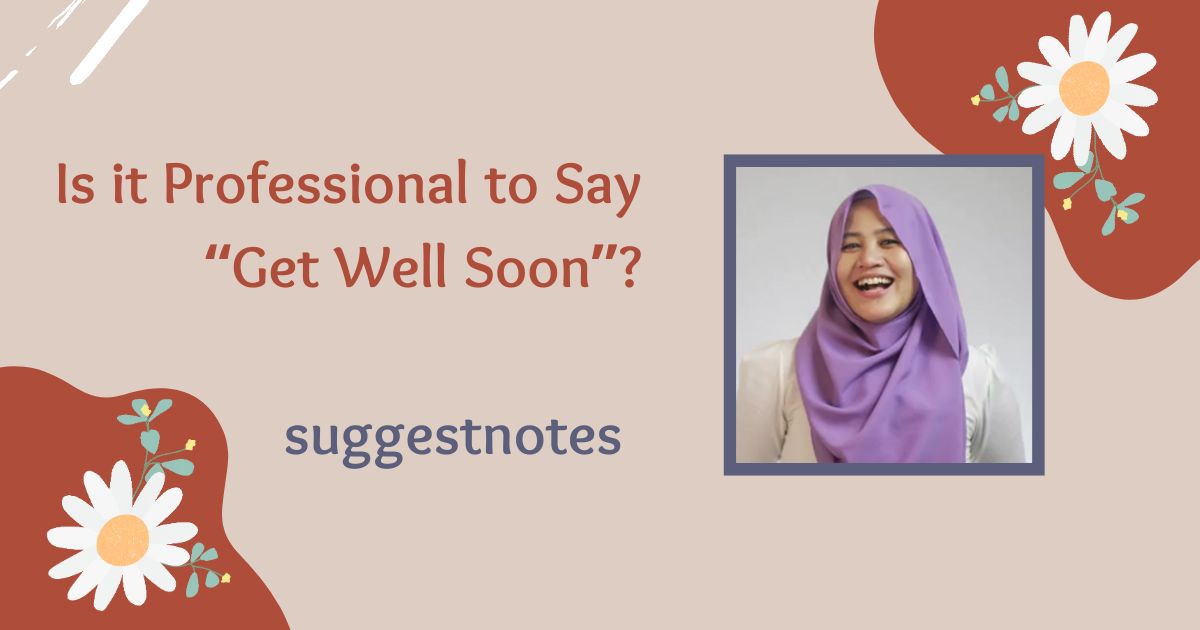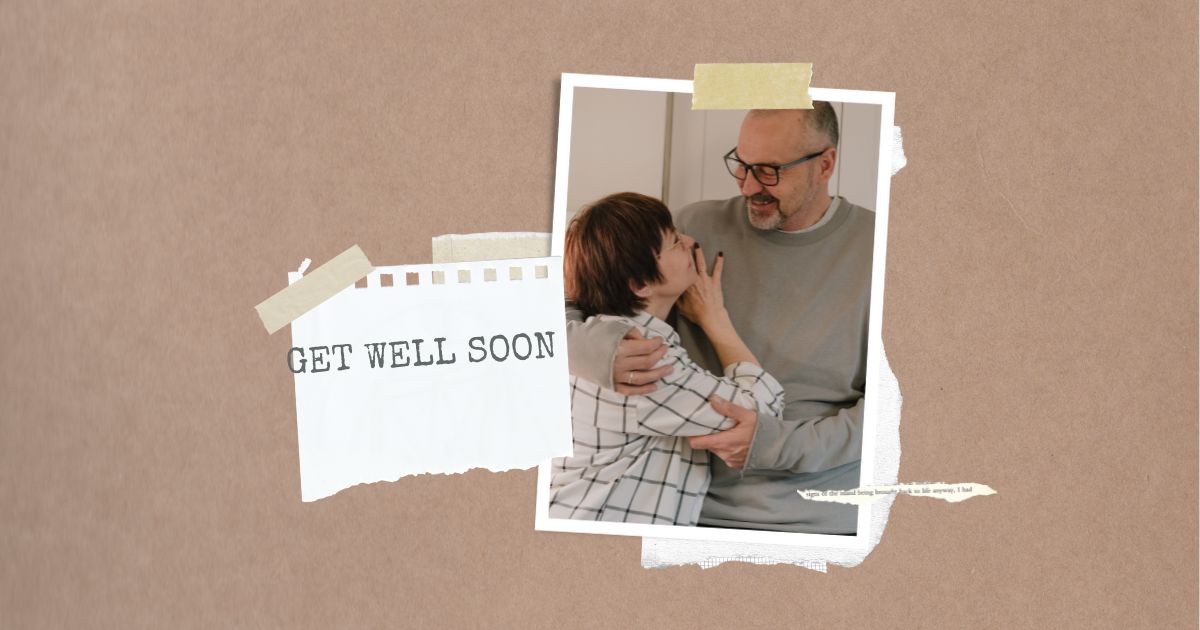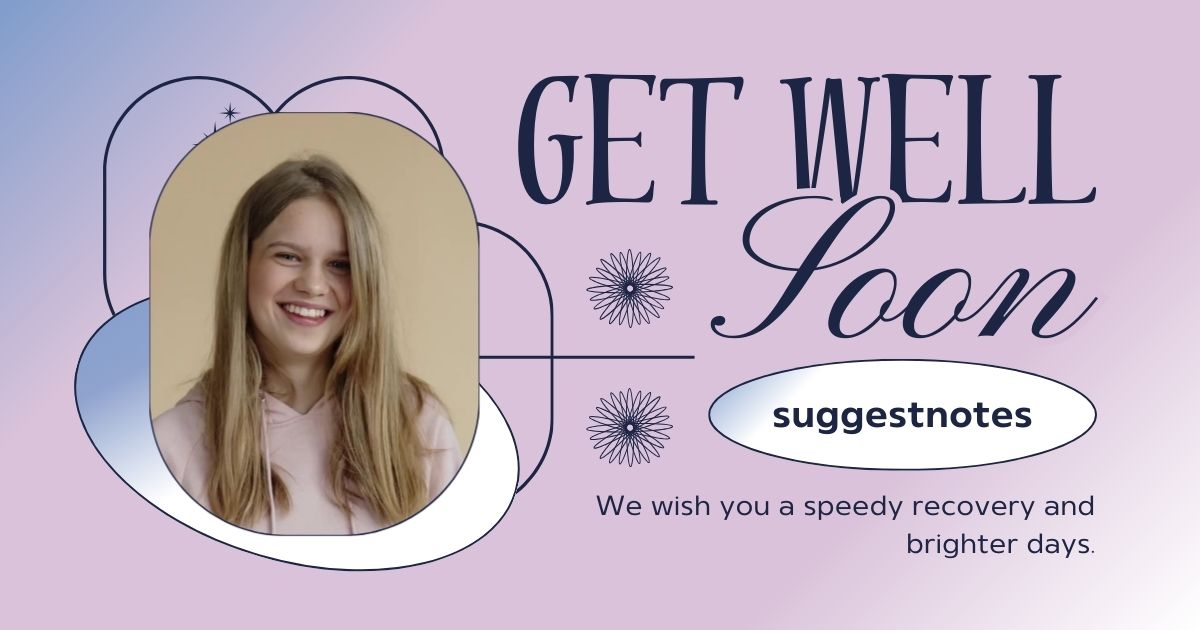When someone we cherish falls ill, our words hold immense power. A simple “Get Well Soon” can feel a bit too ordinary, almost like a rushed afterthought. Instead of sticking to clichés, why not choose words that truly resonate? Thoughtful, heartfelt messages can be a ray of sunshine during a challenging recovery, reminding our loved ones that they are not alone in their struggle.
In this article, we’ll explore ten meaningful alternatives to “Get Well Soon.” Each suggestion aims to connect on a personal level, transforming your well-wishes into a source of genuine comfort and encouragement. Let’s discover how to uplift someone’s spirits and make your sentiments truly shine.
Is it Professional to Say “Get Well Soon”?

Understanding the appropriateness of saying “Get Well Soon” depends largely on context. In casual situations, such as among friends or family, this phrase conveys warmth and care. However, in a professional environment, it may not always be the best choice.
For example, when addressing a colleague or a boss, it might come across as too informal or overly familiar. Cultural perspectives also play a role; some cultures prioritize subtlety and restraint in expressing concern. In these cases, alternatives may feel more fitting.
When you want to show empathy without crossing boundaries, opting for a more neutral or personalized message can foster a supportive atmosphere while maintaining professionalism.
Here are two additional headings with accompanying information related to the title “10 Other Ways to Say ‘Get Well Soon’ (With Examples)”:
The Importance of Thoughtful Well-Wishes
Sending heartfelt messages to someone who is unwell plays a vital role in supporting their emotional and mental health. Genuine well wishes can offer comfort and help strengthen the bond between you, providing a much-needed lift during difficult moments. Rather than sticking to clichéd phrases, taking the time to personalize your messages can have a profound effect, showing your loved one that you truly care about their recovery.
Acknowledging their challenges and providing words of encouragement fosters a nurturing atmosphere that aids in their healing process. By choosing thoughtful expressions of support, you can contribute to a positive mindset, which is essential for recovery. Your messages can be a reminder that they are not alone in their struggle and that you stand by their side, cheering them on as they navigate their path to better health.
How to Choose the Right Alternative?
When selecting a phrase to replace “Get Well Soon,” consider the individual’s personality and circumstances. Think about their sense of humor, preferences, and the severity of their situation.
For instance, a light-hearted message may be appropriate for someone who is merely under the weather, while a more sincere and comforting approach might suit someone facing a serious illness. Tailoring your message not only demonstrates empathy but also reinforces your connection, making your words resonate more deeply.
10 Alternatives Ways to “Get Well Soon”

Consider these alternatives to add a personal touch to your well-wishes:
- Wishing You a Speedy Recovery – This phrase conveys both urgency and positivity. It’s a great way to express your hopes for a quick return to health.
Example: “I hope your surgery goes well. Wishing you a speedy recovery!”
- Hope You Feel Better Soon: This simple, sincere message allows you to show your concern without sounding too formal. It’s easy to personalize based on the person’s specific situation.
Example: “I just heard you were under the weather. Hope you feel better soon!”
- Sending You Healthy Vibes: This casual and upbeat expression emphasizes a positive mental approach to recovery. It’s great for friends who appreciate a light-hearted touch.
Example: “Even though I’m far away, I’m sending you healthy vibes every day!”
- Looking Forward to Seeing You Back at Your Best – This phrase highlights optimism and encourages the recipient to focus on their recovery.
Example: “Take your time to heal. Looking forward to seeing you back at your best soon!”
- Heal Up Quickly: Straightforward and enthusiastic, this expression conveys your genuine hope for a swift recovery.
Example: “Just wanted to drop a note. Heal up quickly; we miss you!”
- Take It Easy and Just Focus on Getting Better: This phrase encourages rest without putting any pressure on the person to hurry back to their normal routine.
Example: “Don’t worry about anything else right now. Take it easy and focus on getting better!”
- Hope You’re Back on Your Feet Soon: A common phrase that emphasizes recovery, this one suggests a return to normalcy.
Example: “I know you’ll be back on your feet soon just take it one day at a time!”
- Sending You Strength as You Recover: This message offers emotional support during tough times, letting the person know you are there for them.
Example: “You’re strong, and I believe in you. Sending you strength as you recover!”
- May You Bounce Back to Full Health Quickly:This phrase conveys resilience and positivity, encouraging the recipient to envision their recovery.
Example: “Take care, and may you bounce back to full health quickly!”
- Get Back to Your Amazing Self Soon: This personal and uplifting expression emphasizes the recipient’s unique qualities and encourages them to recover fully.
Example: “We can’t wait to see you shine again. Get back to your amazing self soon!”
Related Guide:
15 Other Ways to Say “Please Confirm Receipt of This Email” (With Examples)
How to Personalize Your Message?
Personalization is key when expressing well wishes. Tailoring your message to the individual’s personality or interests can make it feel more heartfelt. For instance, if the recipient enjoys a particular hobby, you could mention that in your message.
Something like, “I can’t wait to see you back in the garden!” shows that you recognize their passions and genuinely care about their recovery. Moreover, acknowledging their unique circumstances enhances empathy.
If they’re dealing with a specific illness or situation, a thoughtful comment can go a long way. For example, “I know this has been tough for you. Remember, you have all of us cheering for you!” demonstrates your understanding and support.
Additional Tips for Supporting Someone Who is Ill
While words are powerful, actions can be even more impactful. Here are a few ways to offer support beyond just sending well wishes:
- Be There Beyond Words: Consider sending a care package, flowers, or a home-cooked meal. These gestures can bring joy and comfort during recovery.
- Check In Regularly: A simple text or phone call can mean the world. It shows that you care and are thinking of them.
- Listen and Be Present: Sometimes, the best thing you can do is listen. Offer your time to hear how they’re feeling without judgment. This creates a safe space for them to express their emotions.
FAQ’s
Why should I avoid saying “Get Well Soon”?
While “Get Well Soon” is a common phrase, it can feel generic or insufficient. Using more personalized alternatives can show deeper empathy and support.
What are some alternative phrases to “Get Well Soon”?
Phrases like “Wishing you a speedy recovery” and “Hope you feel better soon” convey genuine care and can feel more heartfelt than the standard expression.
How can I personalize my well-wishes?
Tailor your message to the recipient by mentioning specific hobbies or circumstances, such as “I can’t wait to see you back in the garden!” This shows that you care about their unique situation.
Are these alternatives appropriate for professional settings?
Yes, many alternatives like “Wishing you a speedy recovery” or “Hope you feel better soon” are suitable for professional environments, allowing you to express concern while maintaining a respectful tone.
What if I don’t know the person well?
If you’re unsure of what to say, keep your message simple and sincere. Phrases like “Hope you feel better soon” are universally appropriate and convey genuine concern.
Conclusion
In times of illness, the right words can make all the difference. By choosing alternatives to “Get Well Soon,” you can express your heartfelt support in a way that feels personal and genuine. Each thoughtful message not only conveys your care but also lifts the spirits of your loved ones during their recovery. Remember, it’s not just what you say, but how you say it that matters.
As you navigate through your connections, consider the unique personality and situation of the person you’re addressing. Tailoring your message shows empathy and reinforces the bond you share. With these ten alternatives, you can transform simple well-wishes into a source of encouragement that helps your loved ones feel truly supported on their healing journey.

As a content writer with five years of experience, I focus on creating insightful and impactful website content that drives engagement and boosts search visibility. With a strong foundation in SEO and digital marketing, I excel at crafting compelling narratives that resonate with audiences and enhance brand storytelling. My passion for data-driven content creation allows me to deliver pieces that not only inform but also inspire action. Whether through blog posts, web copy, or informative articles, I strive to empower businesses to connect authentically with their customers.







